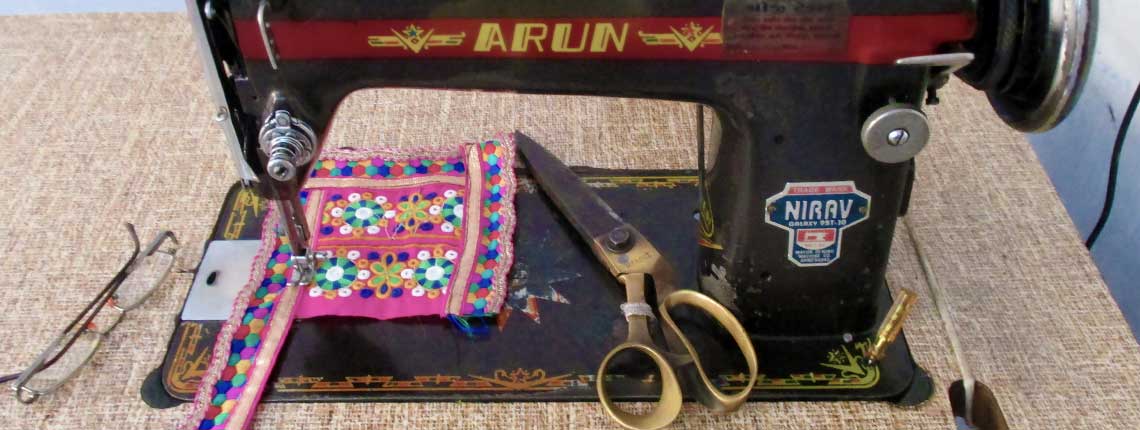Reshmaben is an organizer with the Self Employed Women’s Association (SEWA). She learnt tailoring from her mother when she was 14. Now, at 29, she helps raise awareness among workers about the importance of vaccination and protection against the virus. SEWA also stepped in to provide relief, including livelihood support.
During the first wave, when global and local supply chains came to a halt and strict lockdowns were imposed, many home-based workers had no choice but to take out loans, draw down their savings and pawn or sell assets.
“It was too hard to earn. All the work stopped. Raw materials were not supplied to merchants, so who would give us work? Secondly, the goods prepared by us were not picked up, so we didn’t get paid for work already done.”
During the second wave of COVID-19, when India became the worst-hit country by the pandemic in 2021, home-based workers still had hardly any work. As a result, they struggled to repay loans taken out earlier in the crisis and many had no savings left to fall back on.
“The biggest problem was that savings were used up and then you have to borrow money. Whether we have income or not, we have to spend. The government has not waived the electricity bill, water tax, food, and so on. And then if we have taken a loan from somewhere then we have to pay back installments.”
Also for Reshmaben, the situation was difficult. “My mother died from Corona. I had to borrow money from my father. We also needed to pay for health care for my mother in law and, as my family is big, we have large expenses for food and other products.”
Between May and June 2021, the central government offered free grains to households below the poverty line and the Gujarat government offered loan schemes for vulnerable workers. In the first three months of the pandemic there was cash relief for women, but this scheme was not renewed in 2021.
SEWA filled a gap here by providing additional relief and by supporting its members to register for emergency cash transfers and free food rations from government schemes. In turn, SEWA supported the government to channel cash grants, food rations and cooked food to SEWA members and other informal workers. The association also distributed food packets and set up community kitchens to provide cooked food to families in need. SEWA Gujarat, where Ahmedabad is located, helped rural members set-up food-camps along the highways near their villages to feed migrant workers walking back to their home villages at the height of the pandemic.
SEWA converted information from the World Health Organization (WHO), UNICEF and India’s Ministry of Health into colloquial voice-based messages and disseminated them to SEWA members to spread awareness and disseminate accurate information about the virus and preventive health measures.
The government, Reshmaben says, should do more. “Workers need food, even money, during such a crisis. The government should provide food grains, cash and health care for these families.”
* This story is based on an interview with Reshmaben Bashirkhan Pathan for round 2 of WIEGO’s COVID-19 Crisis and the Informal Economy Study, after the second wave of COVID-19 in India, in 2021. It was published with Reshmaben’s consent. Read more on COVID-19 recovery in Ahmedabad here
